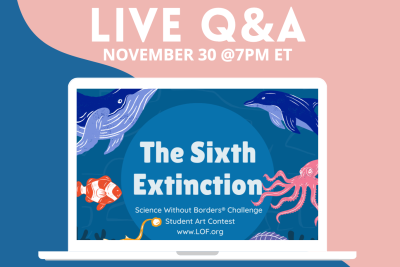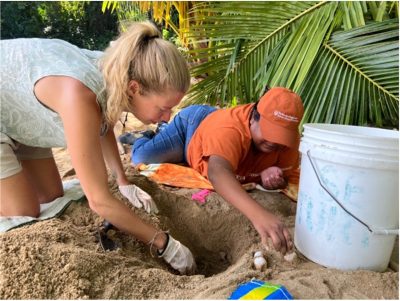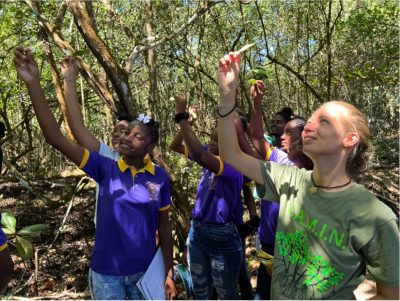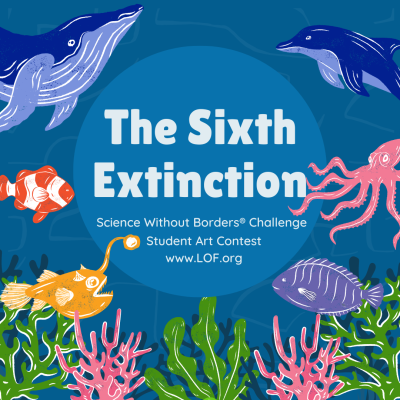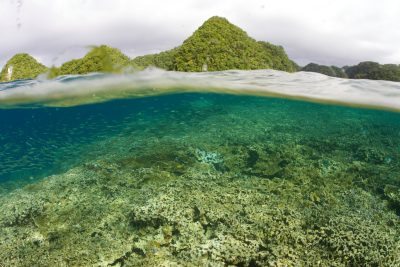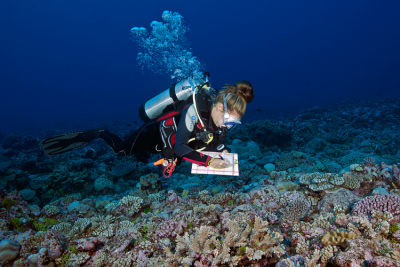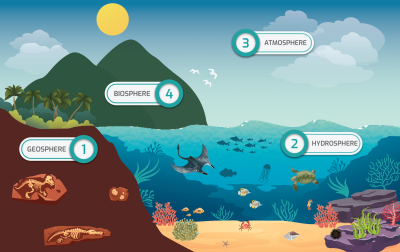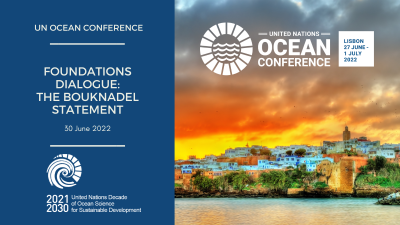
Connecting Students to Nature
The sun is blazing intensely in a cloudless sky, and the lack of a breeze makes the sulfur, rotten egg-like smell even more intense. It feels like 95°F (35°C) and I am sweating profusely as I trudge through the mangroves,

